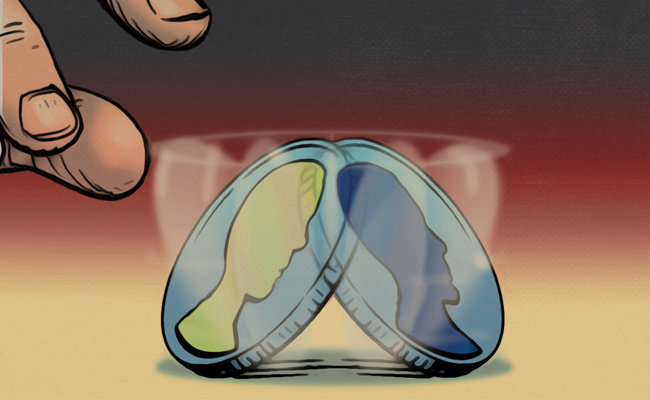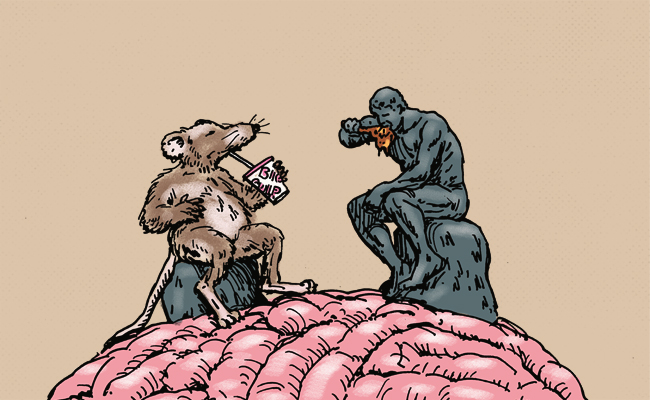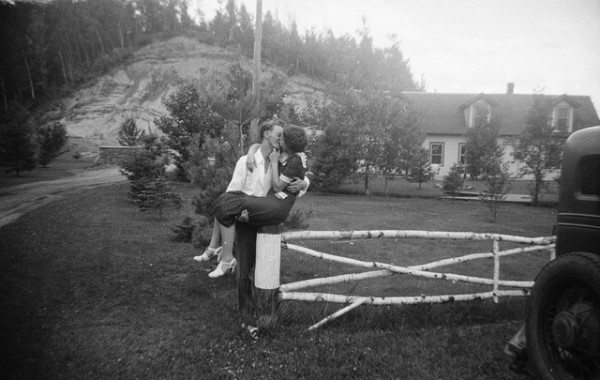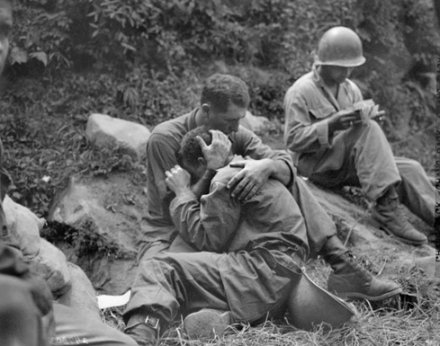
Men are known as the less emotional sex; they are supposed to be bastions of stability; the rock in the middle of a storm; unflappably cool no matter what the circumstance. Of course, it’s not wrong for men to get emotional. It’s unhealthy to keep one’s feelings bottled up and shoved deep down inside. But when is it okay for a man to display his emotions through crying?
The History of the Man Cry
Men have always cried. Yet the acceptability of male crying has varied across time and across culture. There are many references to man tears in ancient Greek and Roman culture. In Homer’s The Iliad there is no conflict between Odysseus’ heroic qualities and the inclusion of many episodes of his weeping for home, loved ones, and fallen comrades. Yet Odysseus never breaks down out of loneliness or frustration, which the ancient Greeks did not feel were acceptable reasons for men to cry. They also expected warriors to understand that there were times when public displays of emotion were acceptable, and times when it was appropriate to cry alone. Odysseus frequently tries to hide his tears from those around him.
The Old Testament is similarly replete with references to weeping. The ancient Hebrews wept as part of their supplications to God and before going to battle. The Gospel writers did not feel that tears were a threat to either the manhood or godhood of Christ and dutifully recorded that “Jesus wept.” Perhaps drawing inspiration from this emotional display, early church thinkers considered tears a gift and a natural accompaniment to spiritual, even transcendent, experiences. The great theologian Thomas Aquinas, like the ancient Greeks, made the distinction between the very public weeping that had characterized Hebraic culture, and the idea that it was frequently best to cry away from people’s prying eyes.
Medieval Japanese and European epics are chock full of male crying. The great warriors in both Beowulf and The Tale of Heiki cry buckets over both great spiritual questions and the death of comrades. The warriors in such stories are expected to cry about issues of war, peace, and ideals, while the women weep over romantic and platonic relationships or out of general sadness, loneliness, or frustration.
Up through the Romantic Era, a permissive, even celebratory attitude toward male crying prevailed. Popular culture was of full of sentimental literature and art featuring men and women falling into each other’s arms and bathing one another with their tears. Tears were seen as proof of a man’s sincerity, honesty, and integrity. But the Enlightenment ushered in a more rational ideal of manhood. Tears came to be seen not as an unmitigated virtue, but as sometimes manipulative, illogical, and false.
During the Victorian Era, those virtues thought to be exclusively feminine in nature were celebrated. Women were seen as dainty and fragile, full or emotion and love. Tears have always had a vulnerable and submissive quality to them, and began to be seen as more befitting a woman than a man. As the 20th century emerged, the ideal of the tearless male emerged with it.
The Man Cry Today
Culture’s view of male crying has continued to evolve into our day. While we still expect men to cry less than women, in some cases it has now become more acceptable for a man to cry than a woman, at least when it comes to our public officials. Hillary Clinton’s tears in New Hampshire brought some compassion, but also criticism that such vulnerability made her ill-suited for leadership. Yet Mitt Romney choked up several times on various news programs without the slightest attention being paid to it. Many see tears as proof that a man is sensitive and humble and thus well-rounded.
Which leaves men in a gray area when it comes to crying in the modern age. Some people these days encourage men to let loose whenever the urge hits. Some adhere to the “you can’t squeeze tears from a stone” philosophy. I think the key to male crying lies somewhere between these two edicts. A man need not be perpetually stoic. There are, of course, times when we feel sorrow or frustration so acutely that it must be let out. Yet there’s a balance between being so sensitive that a Hallmark commercial can make you weep and shedding some tears over something truly significant. Just as there is a balance between releasing some man tears and turning into the kind of blubbering mess that makes everyone feel uncomfortable. Here are some appropriate and inappropriate times to get your cry on.
When It’s Okay for a Man to Cry
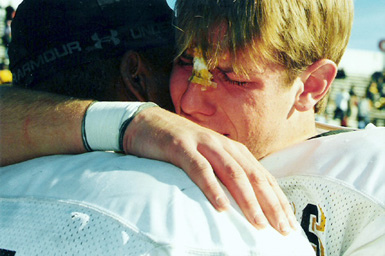
1. The death of a loved one. There are few things more painful than the thought of separation from those dearest to our hearts.
2. The death of your beloved pet. A pet can feel like a member of the family. Whether a horse or dog, the bond between a man and his faithful animal runs deep.
3. When you first see the new life you and your wife created. Many a man has found himself choked up as they cradle their newborn son or daughter.
4. When you propose to the love of your life and she says yes. This should be one of the happiest days of your life. You found your best friend.
5. At the altar as you get married. Everyone in attendance loves to see the husband-to-be get a little misty-eyed as his blushing bride walks down the aisle.
6. When your beloved car or truck, especially your first one, gets totaled. There’s a bond between a man and his wheels that when severed, can really sting.
7. Visiting sites that pay tribute to those who laid down their lives for others. Whether running your fingers over the names at the Vietnam War Memorial or watching the oil leak from the sunk USS Arizona, contemplating the sacrifices made by your fellowman should make you tear up.
8. Describing a really spiritual experience. Feeling touched by a higher power can be really affecting.
9. As an athlete, after the final game/match/event that you will ever play in. You’ll never be in as good shape again. You’ll never experience this level of camaraderie again. You’ll never push yourself so hard every day. Go on and let it out.
10. While watching any of the following movies:
- Field of Dreams
- Brian’s Song
- Shawshank Redemption
- The Pride of the Yankees
- Old Yeller
- Iron Giant
- Life is Beautiful
- Saving Private Ryan
- Rudy
- Braveheart
- Dead Poets Society
- Friday Night Lights
- We Were Soldiers
- Gladiator
- Butch Cassidy and The Sundance Kid
- The Champ
- Glory
- It’s a Wonderful Life
When It’s Not Okay For a Man to Cry

Devotion to your team is respectable. Turning into a blubbering mess when they lose, not so much.
1. When you favorite sports team loses. I get really into sports. But crying when men who don’t know you from Adam lose a game means you’ve got way too much invested.
2. When those around you are looking to you as a source of calmness and strength. Sometimes your loved ones need you to be a rock.
3. To the point of irrational thinking or paralysis when you have a job to do. I wanted to strangle Upham in Saving Private Ryan when he cried in the stairwell while his fellow soldier was being killed. When you have a job to do, get it together.
4. When you don’t get your way. Little boys cry when they don’t get what they want. Men are disappointed, but resilient.
5. When you’re frustrated. Crying because your overwhelmed and don’t know what to do is a cop out. You don’t have the strength to think of a solution, so you cry so you don’t have to think at all. Man up and figure out your next move.
6. In baseball. There’s no crying in baseball!
- Beaches
- Steel Magnolias
- Little Women
- Jerry Maguire
- The Notebook
- Ghost


